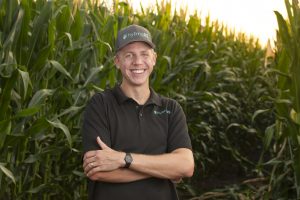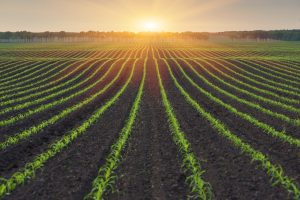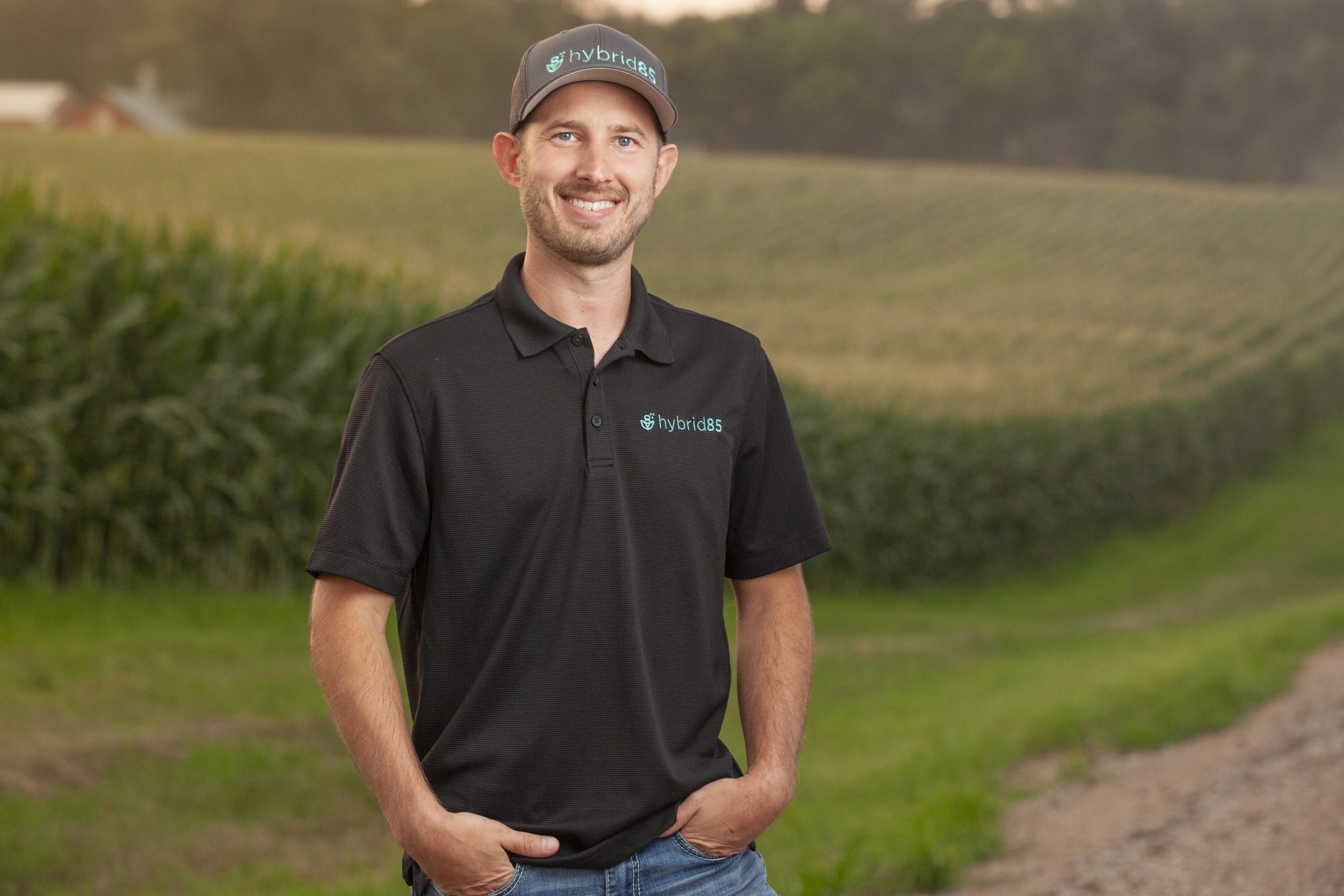The model isn’t working for most farmers: paying $200-$250 a bag for genetically modified seed corn, and receiving so little return that they’re struggling fiercely just to survive.
In 2019, government support was expected to account for nearly one-third of net farm income (Successful Farmer, 11/8/19)—while profits of multinationals soared.
When regenerative agriculture specialist Nate Belcher realized a lot of the costs tied into that bag of corn held no value for the farmer, he cemented a strategy. He decided to shift farmers’ mindset to net profit per acre, and to cut the price of corn so they could capture more margin. By cutting out the fat, eliminating the middlemen, and maintaining low overhead, he and software developer Mike Ackerman came up with a way to sell high quality non-GMO corn seed at $85/unit.

Mike Ackerman, co-owner of Hybrid85 seed company
The two partners launched Hybrid85 in Omaha, Nebraska in November 2018. The mission is to secure profitable farmer incomes, so that with a net-positive return, they can reinvest in regenerative inputs and practices that will better their farm, their livelihoods, and the environment.
Two years later, business is booming and the seed is selling like hot corn cakes. Belcher is thinking big, and long-term—Hybrid85’s goal is to help both small- and large-scale operations reap good incomes, incorporate new practices, and gradually tip our food industry toward sustainable farming.
A calling leads a city boy to growing corn
Nate Belcher had no direct experience on a farm, growing up. He studied business, took a few ag classes, then had a calling to change the food system so that everyone has access to healthy, environmentally friendly food. This “joyous burden” fleshed out when he began a one-acre community garden and met retired professor John Doran, a pioneer of conservation agriculture systems, who became his mentor. The passion grew with a trip to California to study biointensive agriculture—where he saw cover crops working soil miracles on a hillside.
“I saw we could scale this up quickly, on millions of acres,” he said.
 In 2013, Nate launched Green Acres Cover Crops, a traditional cover crop company that led in 2018 to the two partners launching Cover Crop Exchange, an online marketplace connecting buyers with sellers. Eliminating the middleman, growers get paid more for growing, and farmers pay less for the finished product.
In 2013, Nate launched Green Acres Cover Crops, a traditional cover crop company that led in 2018 to the two partners launching Cover Crop Exchange, an online marketplace connecting buyers with sellers. Eliminating the middleman, growers get paid more for growing, and farmers pay less for the finished product.
“As Mike and I advised our customers on using cover crops, the same question kept coming up: Where can I get non-GMO seed?” Nate said. “We saw the void, and decided to fill the non-GMO corn niche. We partnered with independent breeders and producers and launched Hybrid85, providing a non-GMO corn seed with quality genetics, to provide performance that allows farmers to capture more margin per acre.” They selected corn because of its huge acreage—providing opportunity for change on a large scale. The company offers about 22 different hybrids that work well across various regions in the U.S. Non-GMO seed hybrids do as well if not better than GM seeds in recent field trials.
Crunching numbers for profit
How has the company been able to materialize profits in a market so tilted against farmers?
Hybrid85 seed is sold direct to farmers for $85 per unit, translating to over $43 per acre savings on seed (for a large-scale operation, savings of $250,000 are possible). Large seed companies sell for over $200 per unit, the cost accounting for new buildings, expensive ads, trait royalties, and dealer commissions. By cutting out all factors not directly contributing to performance, Hybrid85 can sell at its reduced price.
“We could sell it for more than $85,” Nate said, “but scalability is there if enough farmers buy into it. We sell at the same price to everyone, big or small. We’re self-funded, so we had to be profitable…and though it wasn’t easy, it has worked—because people want to be a part of it.”
The two companies dovetail very well. “Non-GMO corn growers are more open to cover crops, and vice versa,” said Nate. “So, we already had a customer base for our seed. Some are already 3-season customers.”
Belcher and Ackerman are adamant about farmers’ needs being met, and working one step at a time.
“Farmers deserve to be paid for their work,” said Nate. “If you don’t set them up with solutions for that, all these recommendations from environmental activists won’t work…if a farmer doesn’t have profit, he can’t control the farm. So, we meet them where they are and take it from there. If they’re comfortable financially, they can allocate time and energy to change their system. We suggest they try one thing on a small scale, like natural fertilizer, or crop rotation, or reducing runoff. Pretty soon they’ve drunk the Regenerative Kool-Aid and they’re farming at the next level. Conservation farming leads to profit, but without initial profit, they can’t go there.”
The blessing of growing pains
Hybrid85 has seen huge growth since 2018. With the upcoming generation demanding cleaner food and value-conscious choices, and preferring non-GMO food, the prospect of continued growth looks promising as their purchasing power increases. Due to volume, a current challenge for the company is mastering growth logistics—multiple distribution points are being set up to keep freight charges at a minimum.
The rewards come from the vision of small changes leading to long-term change in the global food system—and the change in farmers’ enthusiasm.
“To see growers get very excited about what they’re doing—reducing nitrogen by 30%, getting more beneficial insects—is immensely rewarding,” said Nate. “So, then they do more of what’s working for them. To see the fire back in their eyes—it’s soul satisfying.”





